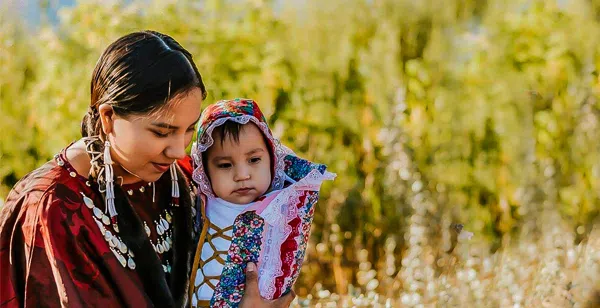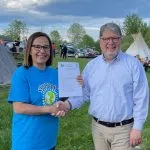
Revitalizing the old ways of childbirth
For those who decide to have children, there can be uncertainty around what to expect during pregnancy and childbirth.
This was the case for Jolene Creely who felt unsupported after giving birth in 2017.
She thought women should have more options available to them. Unsure of where to start Creely spoke with her kokum, mom, and aunties, about their birthing experiences.
“I think that’s where my passion started,” she said. “Hearing the stories of how things were done back in the day (then) going into spaces trying to relearn and revitalize our Indigenous birthing practices.”
This led her to becoming both a birthing support for women and a doula.
“I loved how a doula’s role is nonmedical, but it is supportive and encompasses all supports,” said Creely.
That’s when things really started to resonate with her.
“The spiritual part of birth is what ignited that fire that I have,” she said. “I thought there has to be Indigenous birthing practices and pregnancy care.”
While providing birthing support for women and working as a doula, Creely realized certain things were lacking in the delivery room because, all too often, the focus is only on the physical act of labour.
“I have found the mental and spiritual aspect is missing,” she said. “What we are going through is a beautiful process and it is a spiritual process.”
For those who decide to have children, there can be uncertainty around what to expect during pregnancy and childbirth.
This was the case for Jolene Creely who felt unsupported after giving birth in 2017.
She thought women should have more options available to them. Unsure of where to start, Creely spoke with her kokum, mom, and aunties, about their birthing experiences.
“I think that’s where my passion started,” she said. “Hearing the stories of how things were done back in the day (then) going into spaces trying to relearn and revitalize our Indigenous birthing practices.”
This led her to becoming a birthing support and doula. “I loved how a doula’s role is non-medical, but it is supportive and encompasses all supports,” said Creely.
That’s when things really started to resonate with her. “The spiritual part of birth is what ignited that fire that I have,” she said. “I thought there has to be Indigenous birthing practices and pregnancy care.”

Photo submitted by Jolene Creely
While providing birthing support for women and working as a doula, Creely realized certain things were lacking in the delivery room because, all too often, the focus is only on the physical act of labour and delivery.
“I have found the mental and spiritual aspect is missing,” she said. “What we are going through is a beautiful process and it is a spiritual process.”
She knows the physical part of childbirth is important but so are other things.
“What is missing is the Indigenous side and that disconnect is because of colonialism,” said Creely. “My work today is to revitalize and to remind families this is a spiritual process as well. When it comes to bringing a life earth side that should be amplified more than the physical side.”
Through the Saskatchewan Prevention Institute, a community youth-led health grant was put out and, in February of 2021, Creely started teaching a youth sex education class online.
“Indigenous youth need all the information they can get about their bodies and consent,” said Creely.
She continued this work after being hired at White Raven Healing Centre as a community resource coordinator where she is teaches sex education along with the prenatal and parenting programs she has created.
She relies on personal experiences to help guide her in her role at the centre.
“I had a lot of pregnant friends in high school and there was no programming for them,” said Creely. “They were always left out.” She hopes the work she is doing now will help others.
“Even today there is not much for young Indigenous moms,” said Creely. “So my role is to fill in those gaps.”

